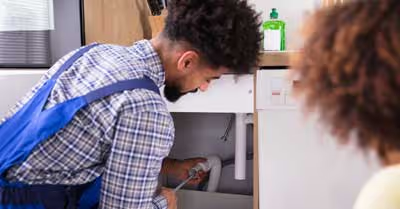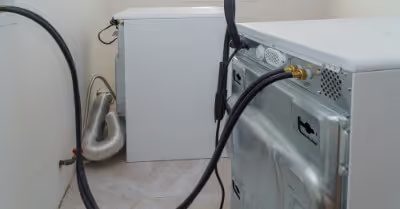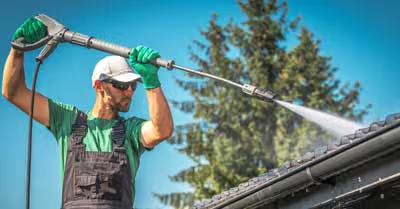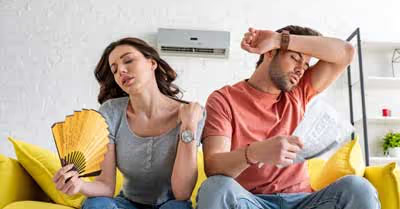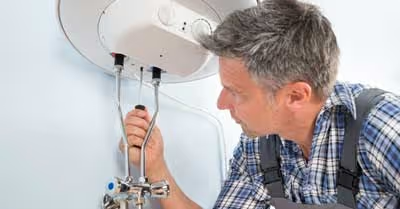Table of Contents
Buyer Home Inspection Checklist
Have you seen something oddly wrong with your prospective new home when touring? Well, this may not be the right time to say anything but it should be part of your home inspection checklist and you should make sure that you bring it up during the actual home inspection.
While a home inspection checklist can vary from state to state, here are the items that you must include in your home inspection checklist.
Foundation - Assess the foundation and find out whether or not it may cause problems now or in the future. Are there trees close to the foundation? Are the big cracks in the foundation? Does any part of the foundation seem squishy, soggy, or sunken?
Exterior - Do not leave any stones unturned when it comes to the exterior. What type of siding can you see on the home? Is it in good condition? Are the trenches and downspouts appropriately attached? Do they drain properly and away from the house?
Structure - Take a closer look at the structural integrity of the home. Do ridge and fascia board lines appear in a straight line? Are the sidings sagged or bowed?
Roof - Find out when the roof was last replaced and is it in good condition? Do you see dark spots, stains, or even moss? Are there cracks, splits, or even minimal blisters? How is the composition shingles? Do they have curls or cups? Are there decays on the roof?
Windows and Doors - Do they close and open easily and properly? Are they misaligned? Are there signs of moisture between the panes and around the frames? Are there any cracks? Are the joints around frames caulked?
Attic and Basement - Are there stains on the underside of the roof, particularly around roof penetrations? Is there any evidence of damage or decay? Is there adequate ventilation in the basement? Are there any open electrical splices in the attic or basement?
Interior Rooms - What is the condition of the floors, walls, and ceilings? Are there stains on the floors, walls, or ceilings? Are lights and switches working properly? What is the condition of the paints?
Smells - Are there unusual odors in the house? It could be an indication of mold and mildew.
Plumbing - Water is a crucial part of any home; it's something that you can't live without. As such, you should thoroughly assess the plumbing system. Are there signs of leaks and drippings under the water faucets? Do these water faucets work? What's the condition of the hot water heater? How about the water pressure, is it efficient? Do not forget to look at the HVAC unit.
Electrical - Even though it's quite hard to have a comprehensive examination of a home electrical system if you aren't an electrician, you should, at least, have a rough idea of the electrical system. Are the lights working? Are the outlets grounded? Are there circuit breakers? What's the condition of the electrical wirings?
Kitchen - Make sure that there are no leaks in the kitchen and every appliance is working properly. The floor should be solid, there should be no stains, there should be no excessive rusts, built-in appliances should operate properly, and cabinets and drawers should be in good condition.
Bathroom - There should be adequate flow and pressure at all fixtures. The bathroom's floor and sinks should be in good condition. The toilet should be working properly. Tub and shower tiles should be solid and secure.
Major Appliances - What's the condition of appliances such as the refrigerator, oven, washer, or dryer?
The Importance of Having a Home Inspection Checklist
Arming yourself with a home inspection checklist is never enough. In other words, it should only act as a guide of what to look for during the actual home inspection. A home inspection checklist will help you understand the home inspection process and help you prepare to ask the right questions during the actual home inspection.
If anything, you should never be a tolerant buyer who can skip even the most important details. And because you do not want those nasty surprises after you buy or move into your new home, it's in your best interest to make sure that the home inspection is professionally and thoroughly done.
Tips for Creating a Home Inspection Checklist
Now that you have in mind some of the most crucial things that should form your home inspection checklist, let's highlight some tips to ensure that the process is as smooth as possible.
Have a List of the Things You Want to be Inspected
Needless to say, the home inspector that you hire will have a checklist of the things to inspect. It would only make sense to review his/her list before you hire them. This can give you an idea of what to expect, as well as an opportunity to ask several questions before the scheduled inspection.
Keep in mind that you don't have to rely on the inspector's checklist only. Instead, you should also have your own checklist and see whether there's an overlap between what's included in your checklist and what the inspector has on his/her checklist. This will give you an idea of what's happening and can be a good way to discuss the overlaps. Make sure that the inspector is checking everything not just on their list but also on your list.
Take Photographs and Jot down Notes
An essential part of the inspection is to have evidence of the state and condition of the home. This is a good way to protect yourself and perhaps use the evidence when negotiating. You should, therefore, bring a camera while assessing the home, as well as during inspection.
Take photos and jot down notes. Do not be afraid to ask questions, as well as the professional opinion of the inspector. You can even protect yourself further by having an inspection contingency included in your purchase contract. You should have an estimate of the repairs as this can allow you to negotiate with the home seller. By having evidence, you can ask the seller to cover the repair costs or a reduction in the sale price if you have to cover the costs.
Be Aware of What's Not Included in an Inspection
It's true that a home inspection will cover many parts of the home if not virtually every part of the home. However, there are some aspects of the home that may not be included in the inspection. In most cases, the inspectors will limit their scope based on the amount you pay for the inspection. It's, therefore, your responsibility to check the things that you don't want to be included in the inspection.
Here are some of the things that may not be included in the inspection.
- Trees and landscaping
- Swimming pool and equipment
- Strange odors
- Septic tank and sewer lines
- Fireplace and Chimney
- Lawn sprinklers
- Pest infestation
- Internet service
- Carpet-covered floors
Be Present during the Actual Inspection
We fully understand that you're very busy and your schedule is tight, but we're talking about your future home so you have to create time and attend the inspection. Although you're not necessarily required to be present, your presence will enable you to discover potential problems early on.
Attending the inspection can also give you a perfect chance to complete the necessary tasks. For instance, you can measure out the windows or even figure out how you'll arrange your new home. You'll also be able to ask the inspector any impending questions and raise red flags in case there's something that's in your home inspection checklist but hasn't been included in the inspector's checklist.
What Should You Do After Finalizing the Buyer Inspection Checklist?
You should use your home inspection checklist notes and photos during the official home inspection. As we noted earlier, the home inspector will have his/her checklist to use as a guide when examining the property. You should use the checklist to identify anything that should or must be fixed. Here's what you should do.
Hire a Qualified Home Inspector
It's of great importance that you hire a qualified home inspector to help you through this crucial process. It's best to find a knowledgeable, certified, and reputable home inspector. Make sure that the inspector is accredited by the ASHI. And even if your state doesn't require home inspectors to have licenses, it's upon you to ensure that the inspector is proficient enough to find issues. You can ask your real estate agent for a recommendation. You can as well do your research, or even ask a friend or a relative.
The cost of hiring a home inspector is generally paid by the buyer but you can include it in the negotiation and share the cost with the seller, though it's very unusual. Generally, the cost of hiring a home inspector ranges between $300 and $1,000.
Make Sure that You Thoroughly Review the Inspection Report
It generally takes a couple of days for the inspector to complete the inspection, create a report, and deliver it to you. Here's what you should do once you get the report.
- Carefully read the report and jot down what you don't understand
- Keep in contact with the inspector so that he/she can clarify any confusing issue on the report
- Keep in mind that the inspector's duty is to highlight issues and report them to you. However, you can seek their opinion on how much it would cost to repair the issues
- You can seek the estimates of professional contractors if there are major issues
- You can discuss the report with your real estate agent
- Pay close attention to the seller's disclosures. Most states stipulate that the seller should disclose any known defects within the property.
The inspection report should form an integral part of your decision to buy or not to buy. Having minor issues shouldn't be a big deal. However, dealing with major problems will not only have a huge dent on your wallet but may also mean that the home turns into a nightmare.
It's normal to find a long list of issues during the inspection. They shouldn't be of great concern since they're likely to be minor issues. You should, however, pay attention if they're major issues. The best thing to do is to ask the seller to fix the issues before closing, You can as well agree to fix the issues but use them to negotiate for the reduction of the sale price.
Final Thoughts
A home inspection is, without a doubt, a crucial and necessary part of buying a home. It will help you identify issues within the home as you do not want to end up with an expensive buy or a nightmarish problem. As such, it's NEVER advisable to skip a home inspection.
As a home buyer, you should have a home inspection checklist. This is to act as guidance to what an actual home inspection really entails. A home inspection checklist will at least give you an idea of areas to check and what to look for during an inspection. More importantly, hire a qualified home inspector to help you through the process of home inspection.
Never be afraid to ask questions and never skip a home inspection.
Recent Articles



